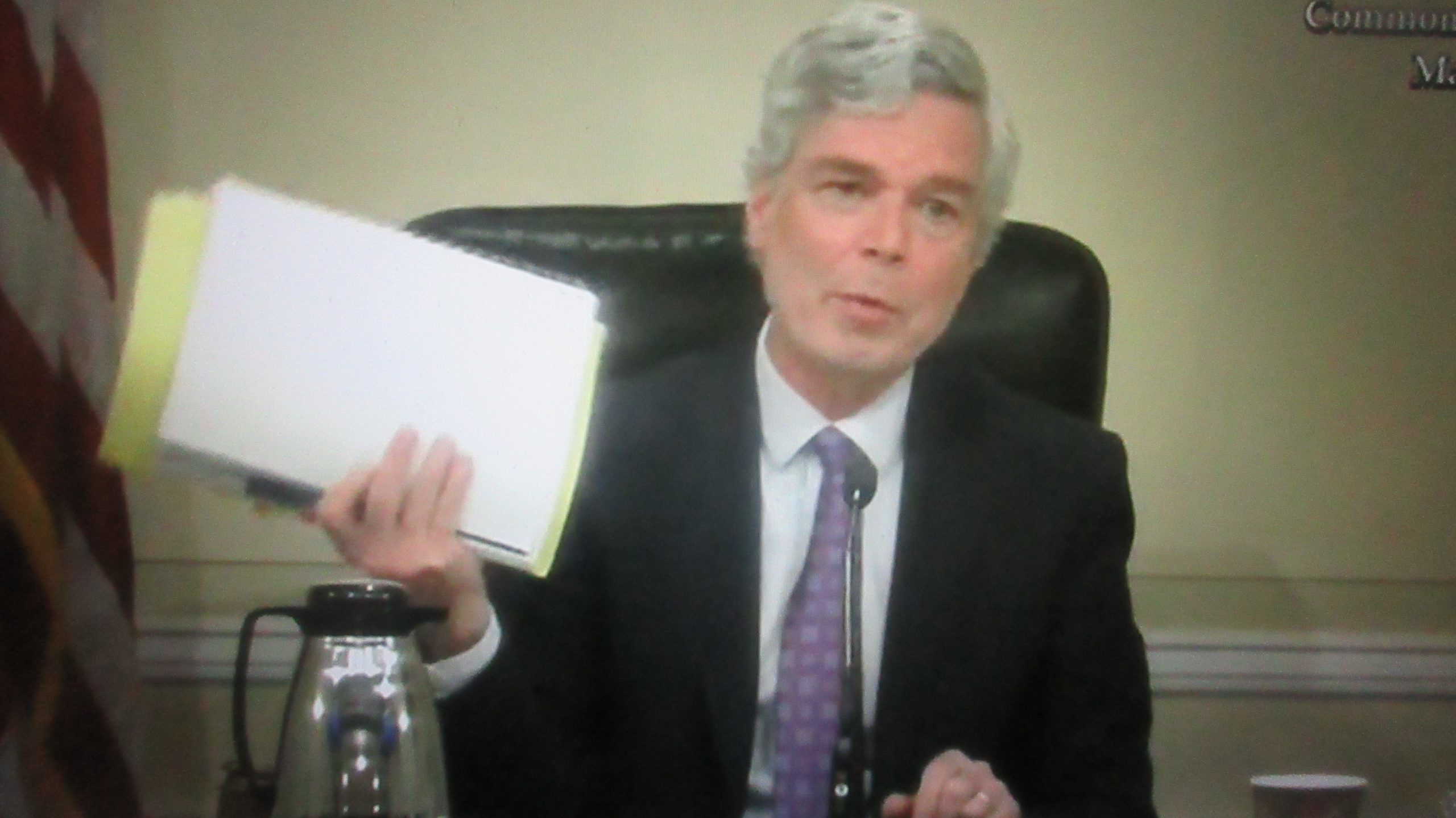Hits: 0
WPCNR White Plains Law Journal Abstract. From WPCNR Legal Correspondent. August 29, 2003: On August 27, the Federal Court of Appeals of the Sixth Circuit in Cincinnati said the Bush Administration violated the law by holding deportation hearings in secret, using the charge the people under scrutiny were linked to terrorism.
WPCNR’s Legal Correspondent has isolated key tracts of Judge Damon J. Keith’s written decision defining the unanimous decision of the three-judge panel.
The Background:
WPCNR presents the guts of that historic decision on a case brought against the Bush Administration when it barred four Michigan newspapers and Representative John Conyers of Michigan from attending deportation hearings of Rabih Haddad, a Muslim clergyman, who had stayed in this country after his visa expired.
Excerpts From the Ruling Against Secret Hearings
Judge Damon J. Keith writing for the three-judge panel. WPCNR has added bold subheads for easier reading.
August 27, 2002
The primary issue on appeal in this case is whether the First Amendment to the United States Constitution confers a public right of access to deportation hearings. If it does, then the government must make a showing to overcome that right.
No one will ever forget the egregious, deplorable and despicable terrorist attacks of Sept. 11, 2001. These were cowardly acts. In response, our government launched an extensive investigation into the attacks, future threats, conspiracies and attempts to come. As part of this effort, immigration laws are prosecuted with increased vigor.
Non-citizens subject to government power
The issue before us today involves these efforts. The political branches of our government enjoy near-unrestrained ability to control our borders. “These are policy questions entrusted exclusively to the political branches of our government.” Since the end of the 19th century, our government has enacted immigration laws banishing, or deporting, noncitizens because of their race and their beliefs.
While the Bill of Rights jealously protects citizens from such laws, it has never protected noncitizens facing deportation in the same way. In our democracy, based on checks and balances, neither the Bill of Rights nor the judiciary can second-guess government’s choices. The only safeguard on this extraordinary governmental power is the public, deputizing the press as the guardians of their liberty.
Places Actions Beyond Public Scrutiny.
Today, the executive branch seeks to take this safeguard away from the public by placing its actions beyond public scrutiny. Against noncitizens, it seeks the power to secretly deport a class if it unilaterally calls them “special interest” cases. The executive branch seeks to uproot people’s lives, outside the public eye and behind a
closed door.
Democracies die behind closed doors.
The First Amendment, through a free press, protects the people’s
right to know that their government acts fairly, lawfully and accurately in deportation proceedings. When government begins closing doors, it selectively controls information rightfully belonging to the people. Selective information is misinformation.
The framers of the First Amendment “did not trust any government to separate the true from the false for us.”
They protected the people against secret government. The office of the chief immigration judge, under the authorization of Attorney General John Ashcroft, designates certain cases to be special interest cases, conducted in secret, closed off from the public. Arguing that closure of these hearings was unconstitutional, plaintiffs in three separate cases sought an injunction against such action…
The district court granted the injunction, finding blanket closure of deportation hearings in “special interest” cases unconstitutional. For the reasons that follow, we affirm the district court’s order. . . .
The public’s interests are best served by open proceedings. A true democracy is one that operates on faith – faith that government officials are forthcoming and honest and faith that informed citizens will arrive at logical conclusions.
This is a vital reciprocity that America should not discard in these troubling times.
Without question, the events of Sept. 11, 2001, left an indelible mark on our nation, but we as a people are united in the wake of the destruction to demonstrate to the world that we are a country deeply committed to preserving the rights and freedoms guaranteed by our democracy. Today, we reflect our commitment to those democratic values by ensuring that our government is held accountable to the people and that First Amendment rights are not impermissibly compromised.
Open proceedings, with a vigorous and scrutinizing press, serve to ensure the durability of our democracy.






